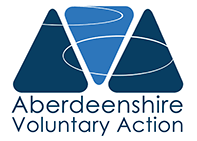The third sector and reinvigorating democracy
Posted on
In this month’s blog, we are delighted to share the personal reflections of Ed Garrett, former Area Development Officer with AVA, as he reflects on recent political events, democratic change and the third sectors role in enabling community activism and engagement, not least through the emerging opportunities afforded by Scotland’s Community Empowerment Act. Do you have a view or comment you want to share, please use the comment function and join in the debate!
Like many people I’m sure, I’ve been shocked and concerned at political events on both sides of the Atlantic in recent months and I thought it might be interesting to reflect on my role as a community development worker with AVA in this context.
In many parts of the democratic world populism is on the rise, and with it has come an apparent scant regard for facts and reasoned debate. Liberal values such as respect for the due process of law and upholding human and minority rights seem to be increasingly questioned.
Much of the analysis for this current trend in liberal democracies focuses on a disenchantment with the traditional democratic process, that somehow what people say and how they vote doesn’t make a difference. There are certainly challenges with how our representative democracy is structured. At a local level, as Lesley Riddoch mooted at the AVA conference in November, local authorities are too big and distant for people to be meaningfully involved. At a national level, commentators have highlighted a complacency, whereby the values of a liberal democracy have been seen as so self-evident, they may have not been actively supported or resourced.
However, voting is really only the end point of democracy and representative democracy only part of what it means to be a healthy democracy. Democracy is also about getting involved in and making decisions in your local community – it’s about what happens with a local lunch club or the work of a youth forum. This participatory democracy and people being engaged and making a difference in their own communities is a crucial part of a functioning democracy. Along with community development colleagues from local councils, NHS, partnerships and other voluntary sector organisations I see support for this as a core part of my role as a development officer with AVA.
The Community Empowerment Act which will really come into force this year provides a welcome framework for this to happen. It gives new powers to communities to acquire assets and get involved in the provision of services and it’s crucial that the third sector along with public sector partners and communities really make this work meaningfully.
To give just a few examples of work that I’m involved with that I see are about supporting an inclusive and sustainable democracy.
A lot of my time is spent supporting local community groups and organisations with governance issues such as writing constitutions and with advice and support on funding. Both these are fundamentally about democratic processes – how groups make decisions that are fair and transparent and accountable to their membership and their communities, including how money and other resources are spent.
In Kincardine and Mearns I’m involved with a piece of research commissioned by the community wellbeing network on why people do and don’t engage in local services and activities. Some of the reasons for a lack of engagement are about power – an awareness of how power is embedded in structures and relationships (for example a professional describing to a group what it means to be healthy) is an important part creating a context in which everyone is in an equal position to have a say on and get involved in what matters to them. Democracy should be a balance between all voices and not just a function of the loudest and most confident voices.
In Marr, through the local community planning group, we are piloting a new way of doing participatory budgeting. So far in Aberdeenshire communities deciding on allocation of funds from a given pot has largely been through voting by the community at public meeting in which the different groups applying for funding make presentations. In Marr we are looking to use mini publics as a way of making decisions on the allocation of funding. Mini publics consist a randomly selected representative sample of a given community, usually with around 12-18 members. Similar to a jury in a criminal trial they are a group of non-experts who are brought together to make decisions/recommendations on difficult issues. Depending on the issue involved they may meet for a number of days and can ask for expert witnesses to give evidence to inform their decisions. This is real participatory democracy in action and gives people who might otherwise not be involved a genuine say in decisions made in their communities.
So there are grounds for optimism for the future and the third sector has a crucial role in making this happen.
